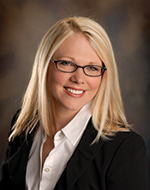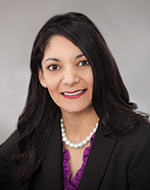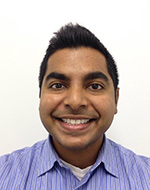Tax Executives Institute has implemented several initiatives aimed at increasing participation among emerging tax professionals, including the formation of an Emerging Tax Professionals Subcommittee. Tax Executive convened a roundtable discussion, moderated by Senior Editor Michael Levin-Epstein, to find out what the subcommittee was doing and the ways emerging tax professionals can network with the overall TEI community. Co-chairs of the subcommittee participated in the discussion—Kristine Rogers, director of tax and chief tax officer at Love’s Travel Stops, and Emily Whittenburg, senior tax adviser for government relations and tax policy in the Americas at Shell Oil—as well as Jibu Vergis, corporate tax accountant at The Vanguard Group.
Michael Levin-Epstein: Let’s start by discussing the mission of the emerging tax professional subcommittee.
Kristine Rogers: The committee was formed in June 2014 at the Leadership Conference in California. Both Emily and I got a tap on our shoulders from Mark Silbiger, the incoming TEI president, inquiring if we would be interested in helping out with the emerging tax professionals group. At that time, the vision and purpose of the group had not been fully contemplated. However, one of the key focuses that Mark was interested in was membership and exploring other alternatives to engage younger members and the different ways to provide professional development resources as they advanced through their careers. The mission of the subcommittee is a combination of efforts and includes four key areas: professional development, soft-skill leadership development, recruitment, and networking, We believe all of these to be very important to the next generation of tax leaders.
Levin-Epstein: Who’s eligible to join the subcommittee?
Emily Whittenburg: The committee is open to all TEI members in good standing, but the subcommittee’s activities are targeted at emerging tax professionals, considered those professionals with five to twelve years of experience in the tax field.
Levin-Epstein: What have you done so far, and what are you planning to do in the future?
Whittenburg: We have recently finalized a three-year strategy document and implementation plan that lays out our goals and planned activities. The strategy document and implementation plan were developed in conjunction with TEI’s executive committee and leadership team, including TEI Executive Director Eli Dicker. The vision for the subcommittee is to establish TEI as the preeminent organization for emerging tax professionals. We have three specific objectives that we’re going to focus on in the next three years: (1) to create and deploy an integrated recruitment strategy for emerging tax professionals; (2) to develop and deliver tax technical and soft-skill programs at the Institute, regional, and chapter levels that are specifically designed for the needs of the emerging tax professional; and (3) to deliver and offer the social and the networking events and opportunities at all three TEI levels. The focus there, as Kris said, is really to engage and to retain these emerging tax professionals and support them in their growth and development as they progress through their careers. To achieve our objectives, we developed four buckets: recruitment, technical/professional development, soft-skill/leadership development, and the social and networking opportunities. We’ve hosted a number of sessions at the Institute level already, including events at the Annual Conference in Houston (2014), the Midyear in Washington, D.C., in 2015, and most recently the Annual Conference in Dallas (2015). We also did a regional-level event in California this past summer. We have more regional events planned for next year, and our first chapter events will be this spring. These events will be around soft-skill and leadership development topics and also will include a social and networking component. As for the remainder of the TEI 2015–16 year, we are focused on the recruitment bucket. We’ve got some exciting things planned around a recruitment video and improving our social media presence. Our subcommittee currently has more than thirty members, and they represent every region of TEI.
Levin-Epstein: How does the work-family balance issue play into all this?
Rogers: I think emerging tax professionals are looking for a work–life balance that allows them to not only be successful as a professional but also in whatever other social or nonprofessional activities are important to them. This means having more input into the planning of their day-to-day schedules. For example, if an out-of-office activity moves to the top of the priority list, emerging professionals want to feel good that they are getting their job done so they can feel free to spend time doing the other things that are important in their lives. The one thing that really helps facilitate that, which is very different from previous generations, is today’s technology. In today’s world, it is possible to work remotely; you can work from different time zones all while still being productive, which helps to facilitate the competing proprieties in today’s everyday life. I find it interesting and agree with the importance of those values. The benefit to this emerging generation, and frankly the example it sets for all of us, is the realization that you have worked really hard, have put a lot into your career, and therefore it is OK from time to time to step back and enjoy the work–life balance provided by this perspective. Employers who understand this ultimately get a much better employee who is more productive, more loyal and has a longer tenure than companies that overlook the importance of this to these professionals.
Jibu Vergis: As a millennial, I would certainly echo everything that Kris mentioned about work–life balance. I think that younger generations also have a strong desire to gain the knowledge and experience that the preceding generations have. We want to build upon that and make things even more efficient and robust than they already are, but we want to know that there is a willingness from the preceding generations to impart that knowledge to newer tax professionals.
Levin-Epstein: How do you personally balance work and family?
Rogers: For me, it’s making sure that I’m not missing out on any of my kids’ activities that I feel are important. And, of course, it goes back to the technology. I don’t necessarily have an eight-to-five job. I have a career, I have responsibilities at home, and I have community organizations with which I am involved. For all of these, it is about achieving a high level of effectiveness while maintaining a balanced life. I have a boss who is great about working with me. If I have to slip out early on a Monday because the eighth-grade football team’s game starts at four o’clock, he’s completely fine with that, as long as I’m getting my job done. It’s very important that I be just as flexible as I’m asking my company to be. I think you can do it all. I think you can balance work and your personal life and still feel fulfilled in getting both done.
Whittenburg: For me, I actually had a career change to get the balance I was seeking. I was a practicing lawyer at a law firm for many years. When I decided that I needed to have some work–life balance and make that a reality, I made a job change to an in-house tax professional role that would give me the flexibility to get more balance. I was lucky to find a job with a company that offered a flexible working environment and understood how important maintaining a healthy work–life balance is for employee engagement and job satisfaction. For me, now, I’ve held two in-house tax jobs, both of which were completely flexible, and I chose them for that particular reason. I have a job now that is flexible in terms of time and location, so as Kris said, I can come and go as I need, I can work from home, I can choose the times I work based on my responsibilities, and I have a role where I am lucky enough with my last two jobs to have every other Friday off. I have a nine–eighty work schedule, which gives me plenty of time to volunteer and do things and be part of my community, the kids’ school, and all the other activities that I want to do. (See more about flexible work arrangements and the nine–eighty schedule in Roundtable No. 2, March/April 2015 Tax Executive.) For me, it’s about communicating what your expectations are with your coworkers as well. I’m part of a team; I’m not one individual contributor. I am part of a larger group of people who do what I do, so it requires good communication and expectations of time commitments outside of work and what I can and cannot do. That’s huge, and we do that all for each other as a team. We’re a six-person team, and we work very well covering work and commitments based on other things.
“Our goal is to connect emerging tax professionals with people so they can exchange ideas and discuss industry and career issues. It’s one thing to do a CPE course online. It’s another, different kind of experience to go to an event—an annual, midyear, or local chapter event—and connect with someone face to face.” —Kris Rogers
Rogers: Emily brings up a great point. It’s all about the communication and making sure that you’re communicating with your boss and your coworkers about the expectations and especially getting those set with your boss and making sure they understand what’s important so that they can be supportive of that. The last thing I want is for a work issue to pop up and the key players wonder, “Where in the world is Kris today? Why is she not here?” It’s making sure that everyone is aware of what’s going on and that we all share some responsibility with each other. It’s important that we all support each other to get the job done. I think that teamwork that Emily mentioned is really important.
Whittenburg: Flexibility and balancing work and family commitments mean that sometimes I put my kids to bed at eight-thirty p.m., and then I turn my computer back on and work from nine to eleven p.m. This flexibility allows me the ability to do things like chaperone my kids’ field trips or do some pro bono activities. It also means that you’ve got to be really good at juggling and managing your time as well and being willing to be flexible.
Vergis: I update my boss, and even my team, regularly on what I have on my plate, what is upcoming, and any issues I am facing and what my plan is to resolve all of those items. I think that tax professionals, including both older and younger generations, generally understand that tax is not a year-round, nine-to-five job. That emphasizes the importance of communication with your group, your boss, and your family about what is going on. We are all professionals, and what I have experienced is that if we act professionally, in terms of communicating our work and personal commitments (and how we will still accomplish those work commitments), those conversations are generally well received.
Levin-Epstein: Are the gender roles changing today?
Rogers: I think they definitely are. I think you find in today’s younger generation that men want to spend just as much time with their kids as women do. It’s not because dads have changed; those desires have always been there. Previously, men didn’t think that it was an option or opportunity. They were more concerned with how that might limit their career. In today’s world, you’re seeing a lot more interest from the male population for these same types of flexibilities. Many companies now have a paternity leave that men can take. That means that Dad going to chaperone a field trip or going to a school event is equally as important as it is for Mom. I think men feel a little more empowered now to be able to ask for that, when maybe they hadn’t been in past generations.
Whittenburg: I would agree with that. I think the gender roles are somewhat changing. I still think primary caregiving responsibilities tend to fall more on women than men, but I think we have a unique dynamic in that we now have more two-parent working couples in the workforce than a generation ago, when we had more mothers who stayed home and didn’t have careers outside the home. Because we now see two-parent working couples raising children, you’re seeing the roles have to change. As Kris said, I think men experience the same desire to be a part of what’s going on in their children’s lives as women do—maybe how they internalize or talk about it externally is different—but I definitely think it exists. Companies are recognizing this isn’t a male–female issue in terms of flexibility. You’re seeing it much more as a generational issue to some degree. People just want their free time, even if they don’t have children. They may have a hobby that requires them to spend some time outside of the office or—we here at Shell have people who have sideline businesses and companies and hobbies. It’s really not a male–female issue as much as it is a change in what employees are looking for in terms of their value proposition and their balance.
Vergis: I see no difference in the concerns of work–family issues between men and women. We have a good mix of men and women within our department, and everyone has their own commitments, including those involving caregiving. In fact, within the past couple of years, we have had more paternity leaves than maternity leaves. I cannot speak for the concerns of men fifteen to twenty years ago, but given that many families are now dual-income, there are not too many differences among the work–life issues that men and women seem to face.
Levin-Epstein: What are the networking opportunities for emerging professionals at TEI?
Whittenburg: I tell people that TEI is the best-kept secret in the tax world. Hopefully, the work that our subcommittee is doing will bring that out. It is a fantastic place to really get out and meet people at all levels in the tax profession. It really is something that can be fun. It’s a huge organization with some very active chapters and regions that do all kinds of neat, fun events. I tell people all the time: It’s how much you want to put into it. You will find someone in your local chapter who you connect with or is willing to give you their time and talk to you about your career and help you connect with those people. Specifically, Kris and I have been running sessions at all of the Institute-level events for the past year and a half, and I think the feedback has been very positive. The people we’ve met and done outreach with are now becoming more active within TEI and even more active in terms of their own career planning.
Rogers: We really want to connect emerging professionals so they can have other professionals to discuss ideas with. It’s one thing to do a CPE course online. It’s another, different kind of experience to go to an event—an annual, midyear, or local chapter event—and connect with someone face-to-face. “I’m dealing with this tax issue, or I’m dealing with this soft-skill leadership issue. How would you go about doing this?” We want to create an environment that facilitates making a connection for the younger generation with people who already have those key life experiences.
Levin-Epstein: How does technology fit in to all this?
Rogers: As I mentioned earlier, technology plays a very important role. I would say the flexibility we have today, which allows you to log in and work from any location remotely, has changed the way we work in today’s world. Ten years ago, you would have had to pack a complete room of filing cabinets, which wouldn’t have even come close to the storage capacity of packing your laptop today. It really wasn’t even an option.
Whittenburg: I think the remote connectivity has changed the work landscape. I can sit anywhere in the world, and as long as I have an Internet connection, I can be connected to my office as if I were sitting at my desk in Houston. That flexibility is amazing.
Vergis: Along the same lines, more and more tax departments are moving everything to electronic means. Our tax department’s documentation is now almost entirely electronic. Our company has an initiative to become a best place to work, and one of the largest means of accomplishing that is by establishing greater flexibility in the workplace. Going paperless within our department within the past two years has allowed anyone within our group to work remotely whenever they want or need.
Levin-Epstein: What has been the impact of social media?
Rogers: I think social media is a great tool to share and communicate with emerging tax professionals and, really, the Institute as a whole. Outside of the group that we’re focused on with this subcommittee, the Institute is really starting to embrace more of the social media aspects, and it can be a lot of fun. Social media provides great ways to share technical information, whether it’s through the new TEI website that’s being developed—and we do plan on having a sub-page within that for our emerging tax professionals, or through other social media channels. It’s one more great way to stay connected with people you’ve met along the way, or maybe people you haven’t met yet. It’s one more way to get your message out there.
Whittenburg: I agree, I think it’s critical and central to what we’re trying to do with emerging tax professionals. For me, it’s been valuable, and I think it will be for others as far as building that human connection and building that relationship. It’s a way for us to stay connected when we all live in different cities and we’re all busy and traveling. It’s nice to be able to pick up your phone and look at your Facebook feed or your Instagram feed and see one of your TEI friends doing something fun and exciting, whether work-related or personal. Most recently, we were looking at one of our friends hosting his global tax conference and posting pictures with his team. But at the same time, we get to see pictures of him and his family on vacation. It’s allowed us to build a much more personal relationship that was started through a TEI event. Whether we’ve actually physically spent a bunch of hours together or not, we all seem to feel connected, and that’s important in a world where we are getting information and news in bits and seconds of information. Everyone is still searching for that connection. Social media for us and those platforms for our group that we’re focused on in the larger TEI community are going to help us bridge that gap.
“Our company has an initiative to become a best place to work, and one of the largest means of accomplishing that is by establishing greater flexibility in the workplace. Going paperless within our department within the past two years has allowed anyone within our group to work remotely whenever they want or need.”
—Jibu Vergis
Vergis: I also agree that social media is fantastic, when used in conjunction with face-to-face events. It is a great tool than can be used in two directions. Tax is such a small, spread-out world, and social media is a great means of both keeping folks connected as well as adding a personal touch to our professional relationships. I personally am looking forward to seeing it as a great way of continuing to create a buzz about TEI and the great opportunities it has to offer our emerging tax professionals. My hope and expectation is that the millennial tax generation will still continue to value the in-person connection that is only created through venues like a TEI national or local event.
Rogers: We have a Facebook page for the emerging tax professionals. You should check that out. We also have a mascot from one of the TEI annual conferences that was hosted down in Houston. His name is Jorge Tito the TEI Burro. Together we post upcoming events, pictures, and a variety of different things on his page.







